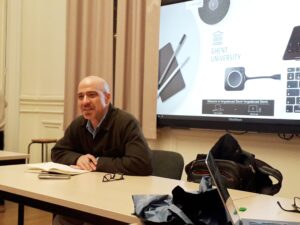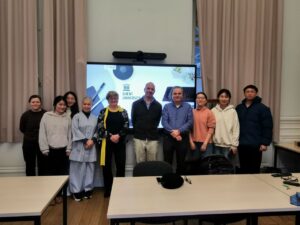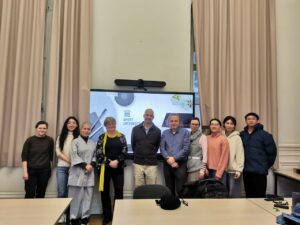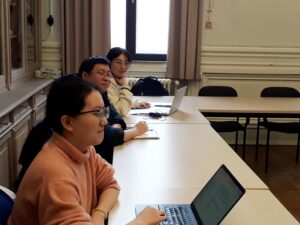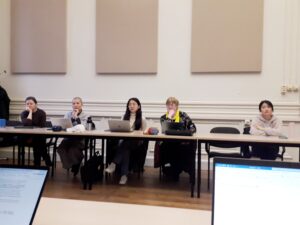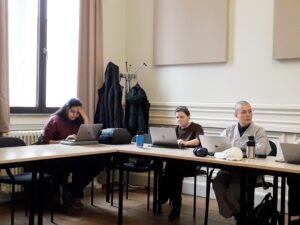On Friday, February 23, 2024, the Ghent Centre for Buddhist Studies welcomed Professor Neil Schmid 史瀚文 from the Dunhuang Academy 敦煌研究院. In the beginning of the meeting with the GCBS researchers, Neil Schmid introduced the Dunhuang Academy, which is located in Gansu province of China and engages in conservation and research of a number of major Buddhist cave sites in the Hexi corridor, most prominently the Mogao caves in Dunhuang. Comprised of about 120 full-time researchers and over 1000 staff, the academy runs its own Journal of Dunhuang Research and shares some of its resources with the general public through the Digital Dunhuang platform. Neil Schmid’s own project at the Academy aims at publishing a comprehensive guide to scholarly resources on Dunhuang studies for Western scholars.
In the second part of the meeting, Professor Schmid shared with the students his experience using various kinds of software to streamline their research activities. He advised using Zotero to create bibliographies, accumulate libraries of PDFs, and manage them with tags. Another useful piece of software is the cloud-based Devonthink that Neil Schmid uses for storing images and other resources related to each of the Buddhist caves. Finally, according to him, the best solution for writing a book is Scrivener, which allows you to store data locally, synchronize on multiple devices (i.e., the notes that you make on your tablet will also appear on your computer), tag and connect notes.
Last but not least, the young scholars of the GCBS had an opportunity to ask their questions and discuss their ongoing research. The topics touched upon the social history of Dunhuang, the development of imagery of Buddhist deities, and the Dunhuang-related resources in the collection of the National Museum of India. GCSB’s Professors Ann Heirman and Christoph Anderl proceeded to discuss possible cooperation between the GCBS and Dunhuang Academy after the meeting.
Report author: Mariia Lepneva
